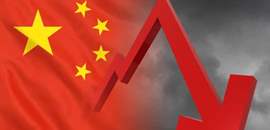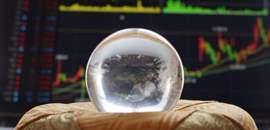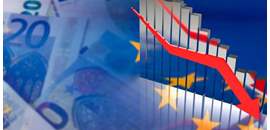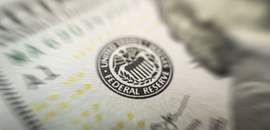Risk of Global Trade Conflict
One source of tension is that China’s leaders are expanding the country’s manufacturing and export capacity to offset its current economic slump. This is occurring as the European Union considers tariff increases on car imports and carbon-intensive imports and when relations with China are likely to be an issue in the U.S. presidential election.
On the surface, this development may seem unlikely, considering that frictions between the U.S. and China lessened late last year. President Biden and President Xi agreed to resume direct military talks that were frozen after former House Speaker Nancy Pelosi visited Taiwan in 2022, and the first meeting took place in early January.
There has also been a détente between the two countries on the trade front. The Biden administration has sought to assuage China that the goal of U.S. policy is to “de-risk” the relationship with China rather than to decouple from it.
Why Might a Trade Conflict Resurface?
The principal reason, according to The Economist, is that "China is about to unleash another wave of deindustrialization on the rich world." It estimates that about 1 million American manufacturing workers lost their jobs to Chinese competition in 1997-2011. This estimate appears low considering that manufacturing job losses totaled about 6 million then, and it helped Donald Trump win the presidency in 2016.
The next wave is likely to be massive exports of Chinese autos, including a growing share of electric vehicles. Data from the Japan Automobile Manufacturers Association show that China overtook Japan as the world’s biggest vehicle exporter last year. China’s customs bureau put the figure at 5.52 million, an increase of more than 50 percent over the previous year, with 1 in 3 cars shipped being electric vehicles.
Made in China
China's biggest producer, BYD, also snatched Tesla’s crown for the most sales of all EV units, backed by strong support from the Chinese government. The Economist notes that since the launch of its "Made in China" policy in 2015, China has "brazenly disregarded global trading rules, showering handouts on its carmakers," including "underpriced loans, equity injections, purchase subsidies and government contracts."
Chinese electric carmakers have set their sights on becoming major players internationally, with a particular focus on Europe. BYD currently sells five models in Europe and has announced plans to build a new factory in Hungary.
European Commission president Ursula von der Leyen accused China of flooding global markets with prices "kept artificially low by state subsidies." Meanwhile, a probe was launched in September that could result in punitive tariffs on Chinese EVs, exceeding the current standard rate for imported cars of 10 percent.
Impact on Global Trade
The Financial Times points out that global trade could also fragment because the European Union is about to impose the world’s first tax on emissions of carbon-intensive imports, including items such as steel, cement, iron, aluminum, fertilizers, and more. The levies will begin in 2026, but the transition is already underway. The matter is of particular importance to the Chinese government, which is trying to wean the country’s steel production off coal-fired blast furnaces.
These developments have not unduly impacted the U.S. thus far. However, potential changes in China-U.S. trade policy could occur after the U.S. elections.
In 2018, President Trump slapped tariffs of 25 percent on $50 billion worth of Chinese goods, which set off a round of tariff increases that eventually impacted approximately $380 billion worth of imported goods. According to a study by the Tax Foundation, American consumers paid the equivalent of $80 billion more for these goods, which represented one of the largest tax increases in decades. The study estimates that the higher tariffs, which the Biden administration has left in place, will reduce long-term economic growth by 0.2 percent and cost 166,000 jobs.
U.S. Stock Market Selloff
The heightened uncertainty over trade also contributed to a U.S. stock market selloff of nearly 20 percent in the fourth quarter of 2018. According to a study by the New York Federal Reserve, it lowered the market capitalization of U.S. listed firms by $1.7 trillion, with the most impact on firms with direct exposure to China.
In the event there is an escalation in the trade conflict, it could be more harmful to the U.S. economy and the global economy for two reasons.
- First, the tariff increases that Trump is telegraphing are more extensive than in 2018-2019. He initially called for an across-the-board tariff hike of 10 percent. However, he upped the ante in a recent interview in which he said he would impose tariffs on Chinese goods that could exceed 60 percent.
- Second, a trade war could be global this time if the European Union follows through on plans to boost tariffs on cars and “dirty” imports.
Such an outcome would represent a major threat to the post-WWII order conceived by President Franklin D. Roosevelt to provide for peace and prosperity globally. It is a risk investors cannot afford to ignore.
A version of the article was posted on TheHill.com on February 16, 2024.
This publication contains the current opinions of the author but not necessarily those of Fort Washington Investment Advisors, Inc. Such opinions are subject to change without notice. This publication has been distributed for informational purposes only and should not be considered as investment advice or a recommendation of any particular security, strategy, or investment product. Information and statistics contained herein have been obtained from sources believed to be reliable and are accurate to the best of our knowledge. No part of this publication may be reproduced in any form, or referred to in any other publication, without express written permission of Fort Washington Investment Advisors, Inc. Past performance is not indicative of future results.






























